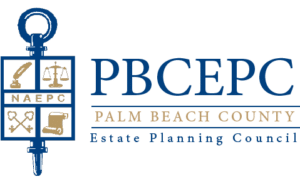 Charitable Trusts are powerful gift planning vehicles that allow donors to receive maximum tax and financial benefits while supporting their favorite charities. The Charitable Lead Trust is one type of these trusts and is particularly effective in low interest rate environments such as the historically low environment we are in currently. Donors considering major gifts should consult with their charity and their advisors on how to make the most efficient gift.
Charitable Trusts are powerful gift planning vehicles that allow donors to receive maximum tax and financial benefits while supporting their favorite charities. The Charitable Lead Trust is one type of these trusts and is particularly effective in low interest rate environments such as the historically low environment we are in currently. Donors considering major gifts should consult with their charity and their advisors on how to make the most efficient gift.
Joe Brown and his wife Ellen are in their 70s and by any measure, led a successful and fulfilling life. They raised a wonderful family and their son and daughter have blessed them with five grandchildren. Their business was successful and they have all that they need to enjoy a carefree retirement.
Joe and Ellen have been charitable for most of their adult lives and continue to make meaningful gifts to the organizations they care about. They also care deeply about their kids and want to transfer as much of their estate to them as possible.
The couple are contemplating making a $1 million gift to their favorite charity. They were prepared to make the gift by transferring $1 million of appreciated stock and understood that at their Federal income tax bracket, they would realize a $370,000 tax savings the year they make the transfer. The tax savings they would receive reduces the net cost of the gift to Joe and Ellen to $630,000.
When they discussed their intentions with their financial, legal and tax advisors, the conversation turned to exploring ways to make their gift more efficient; that is, at the lowest net cost to them. Joe, Ellen and their advisors contacted the intended recipient of the charitable gift and asked for illustrations of how different gift strategies would impact the net cost to them. The charity was glad to oblige.
The charity suggested they explore the use of a Charitable Lead Trust (CLT) to make their million dollar gift, explaining that it could dramatically reduce the cost. Functioning much like a loan to the charity, most if not all the dollars contributed would eventually be returned to the donors or their children, as illustrated in the following example.
Joe and Ellen could establish a special type of CLT called a Charitable Lead Supertrust, which they design to: 1) pay their favorite charity 7% annually for a period of 15 years; and 2) transfer all the assets left in the Trust to their children after that period. They contribute $1million in appreciated assets to the Trust and appoint their attorney as Trustee. As Trustee, their attorney along with their financial advisor will manage the investment of the Trust’s assets and make distributions as Joe and Ellen have directed.
The results of the gift are:
- Joe and Ellen receive a charitable income tax deduction the year they make the gift to the Trust. At their Federal Income Tax Bracket it generates a $370,000 tax savings for them.
- Their favorite charity receives $70,000 a year for 15 years, generating $1,050,000 for the charity over that period.
- At the end of the 15-year period, the Trustee distributes the $1,271,000 projected to be remaining in the Trust to Joe and Ellen’s kids free of estate or gift tax, thus saving them up to $508,000 in additional taxes.
- When you combine the income tax savings Joe and Ellen received the year they made the contribution to the Trust and the $1,271,000 passed on to their kids, the total benefit to Joe, Ellen and their family is $1,641,000!
By carefully planning their giving with their advisors and their charity, Joe and Ellen were able to make a $1,050,000 charitable gift and receive $1,641,000 of benefits in return. This gift strategy effectively reduced the net cost of their gift to $0. In fact, they made a return on their charitable loan of $641,000.
Charitable trusts are one example of sophisticated vehicles that can offer a variety of benefits to donors and their families. Individual results will vary depending on a number of factors. Donors should consult with their financial, legal and tax advisors before making a major gift.
Please contact Irv Geffen, Senior Vice President, MorseLife Foundation, at 561-209-6154 to explore if a Charitable Gift Annuity makes sense for you.
Irv Geffen is the Senior Vice President of the MorseLife Foundation. The Foundation supports the charitable work of the MorseLife Health System which provides comprehensive living and healthcare solutions for seniors. Irv has worked with non-profits for over 30 years designing charitable gifts to accomplish the donors’ charitable, personal and financial goals in coordination with their professional advisors.
